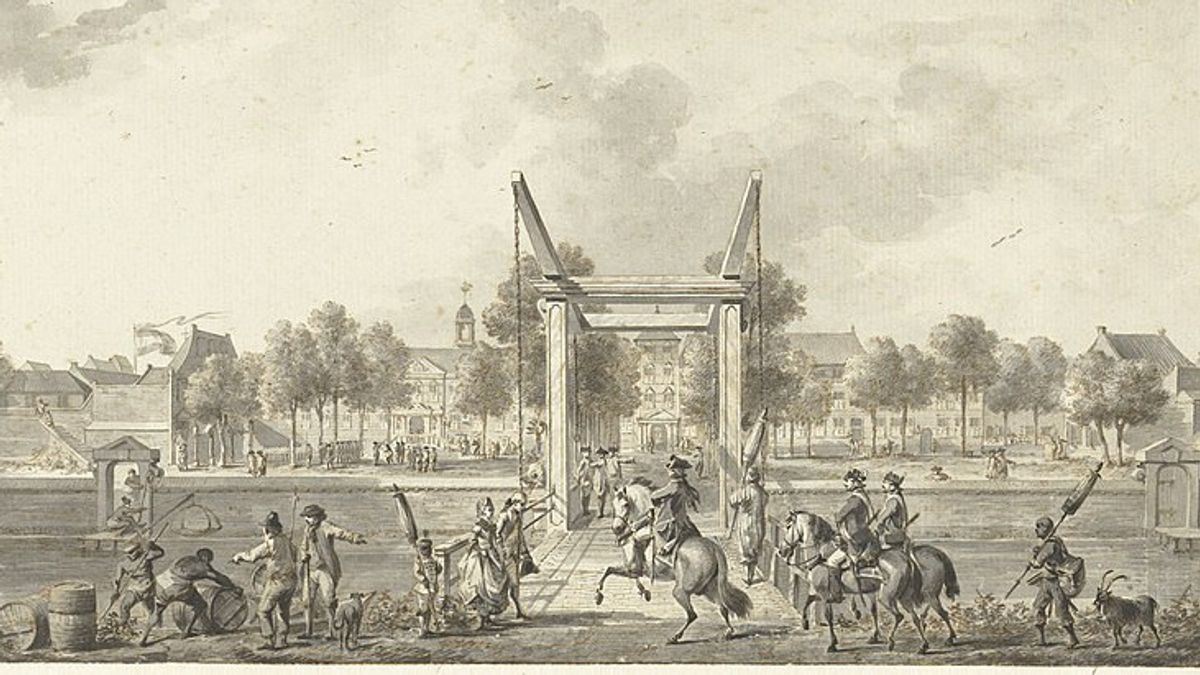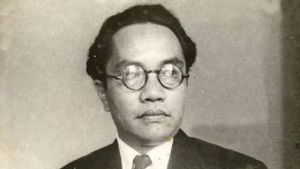JAKARTA - The life of a Dutch trading partnership employee, VOC in Batavia (now: Jakarta) is full of dynamics. The way of recruiting the Company is just behind it. Instead of being a Company personnel filled with many rich and civilized people, most of them registered from the lower class.
Money, power, and spree are the main missions. This condition makes all kinds of events filled with spree. At funeral ceremonies, let alone. Death is celebrated like a party. Liquor must be present and Chaos often occurs.
Life is never easy for those who come from low social status in the Netherlands in the past. This condition made the desire to work with classy positions and high salaries a dream in broad daylight. Everything changed when the Company was present.
The trade conspiracy driven by Heeren Zeventien (Dewan 17) is like a'machine change of fate'. Whoever they are 'employment, orphans, educated people' as long as they are not Catholics can become Company employees.
The only problem they face is their willingness to be placed in an area far from their hometown: Nusantara. Even they will be lucky if they can work in the center of power of the Company in Batavia.
Good luck then accompanied the Company's employees. Those who used to be no one were transformed into first-class residents in Batavia. Access to positions and money is wide open. Mainly, through the path of corruption.
This condition brought the mentality of the New Rich (OKB) out. The Dutch are known to like spree and show off their wealth. Something they would never get if they were in the Netherlands. They build large houses, buy horse carriages, jewelry, and like to party.
This condition made the morale of the Dutch plummet. All kinds of desire to have fun is trying to do. Quarrels to speed up on the streets because of getting drunk became commonplace. The church council had banned it by giving fines. However, the Dutch's bad behavior continued.
SEE ALSO:
VOC personnel generally don't get the opportunity like that of the Governor-General of the VOC, Speelman (in terms of power), but as far as possible they are looking for opportunities to match their lifestyle. This often ends with inefficiencies, moral intolerance, corruption, as well as acts of roughness and cruelty against the natives, thereby increasing their feelings of hatred for the VOC.
"For example, the VOC students commander in Kartasura in 1682 reported that VOC soldiers raped Javanese women in their homes, and that soldiers, both Christian and European bumiputras, smoked opium, and drank unhealthy rice palm wine," said MC Ricklefs in the book Modern Indonesia History 12002008(2008).
Faya-foya behavior continues to surround Dutch life cycles in Batavia. They not only held a big celebration for weddings, but also at funeral ceremonies. Funeral ceremonies are no less luxurious than weddings.
This condition took place because more and more Dutch came from their homeland. The shift in meaning related to death, which incidentally full of tears, turned into a fun party full of laughter occurred. Funeral ceremonies are forced to be fun and luxurious for the sake of prestige.
The burial ceremony often ends with a banquet at the funeral. The meal was not an ordinary banquet. Many of them provide liquor. The Dutch also drank until they were drunk. As a result, chaos became unavoidable.
The embarrassing riots continued. In fact, every time there is a funeral, riots often appear. A fight over alcohol made the Dutch no longer look at moral matters. This condition made the Council of Churches angry.
They try to make rules so that riots don't happen at the funeral. However, the result of the riots often occurs. Even though the Church Council settled on fines in certain amounts. The Dutch were also banned like the last wind. One blow and forgotten.
The 1658 archival note said that due to quite a lot of liquor being stuck at the burial party, there were often embarrassing acts and disputes around the tomb. Therefore, a ban on consuming liquor during the burial ceremony was issued. It was then decided that the dining party which is usually held at the funeral home, may only be attended by relatives and close friends.
Another mourner simply shook hands with the family at the door of the funeral home and was not allowed to enter. However, shortly thereafter the 1658 ordonation had lost its target so that the wall announcement which stipulated a 25 ringgit fine for violations of the rule had to be announced repeatedly in 1671 and 1714, "explained the historian, Hendrik E. Niemeijer in the book Batavia: The XVII Century Colonial Society (2012).
The English, Chinese, Japanese, Arabic, and French versions are automatically generated by the AI. So there may still be inaccuracies in translating, please always see Indonesian as our main language. (system supported by DigitalSiber.id)













